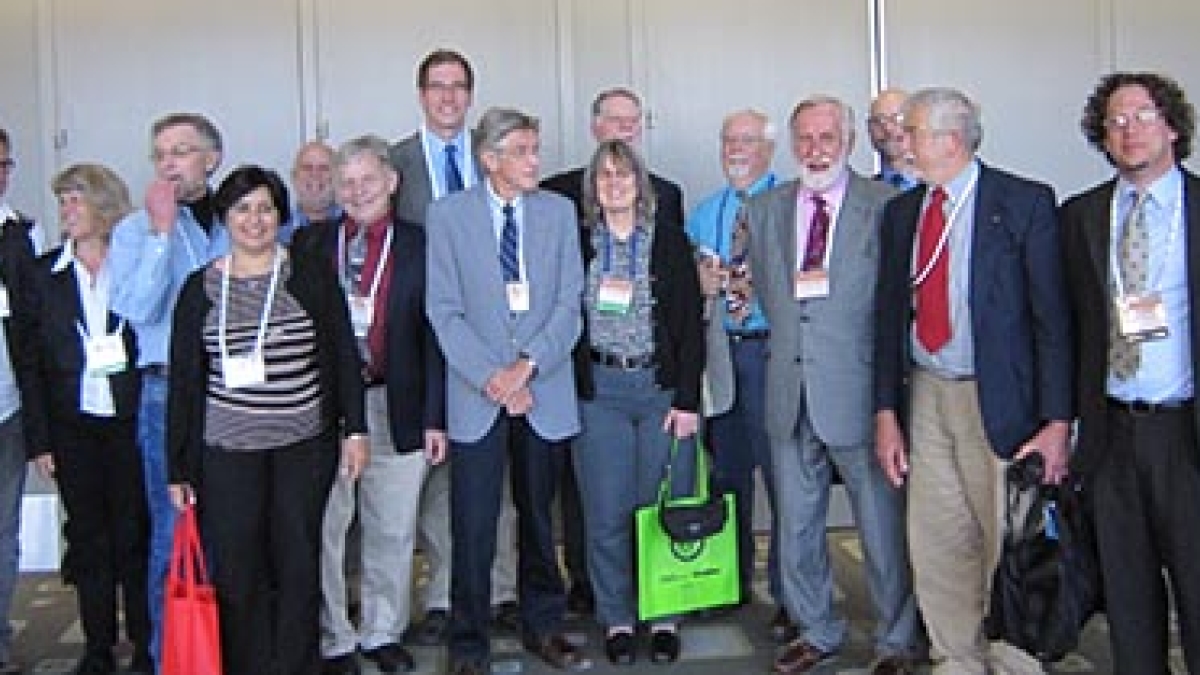ASU archaeologist honored at national symposium

The achievements of Arizona State University archaeologist Geoffrey Clark were lauded at a symposium this April at the 79th annual meeting of the Society for American Archaeology in Austin. “Paleolithic Paradigms: Papers in Honor of Geoffrey Clark” was followed by a celebratory dinner at a local French restaurant.
Organized by three of the Regents’ Professor emeritus’ former students, the symposium included presentations by 12 scholars and four discussants. Colleagues and students traveled from England, Spain, Jordan and Korea, as well as from across the United States.
“Geoff was an outstanding mentor at ASU who was very proactive when it came to his students,” says co-organizer Michael Neely, associate professor of anthropology at Montana State University. “Not only did he assist me in gaining valuable field experience through his projects and through his network of contacts, but he was a strong advocate for me when it came time to search for employment after graduation. I don't think that I would have the position and career that I have without Geoff's support and advocacy.”
Neely believes it was important to recognize Clark’s accomplishments and influence on graduate students and colleagues. He also feels the event was one way to say thanks to Clark for the positive impact he has made in many professional lives.
Clark, who arrived at ASU in 1971, was pivotal to building the Department of Anthropology’s archaeology-track doctoral program. He remained a major figure in the program as the department grew and transitioned into the transdisciplinary School of Human Evolution and Social Change in the College of Liberal Arts and Sciences.
“Although research and publication were as important as they are today, the creation of a viable Ph.D. program was the highest priority of my cohort of faculty,” Clark says. “When I came to ASU, we had yet to award our first Ph.D. The hundreds of doctorates awarded since are living proof of the program’s success. I'm proud of them all. Interacting with grad students has been the most rewarding aspect of my career. I'll miss them.”
A prolific author, speaker and field researcher, Clark is well known for his work regarding quantification in archaeological research, modern human origins and hunter-gatherers, particularly in the regions of Spain and Jordan.
Former Clark student Maysoon Al Nahar, Dean of the Faculty of Archaeology and Tourism at the University of Jordan, spoke at the symposium and formally thanked Clark for his contributions to her university and to Jordanian archaeology.
She explains, “Dr. Clark introduced research in Jordan to many researchers in the U.S. and inspired them and gave them the opportunities to travel to, and do their studies in, Jordan. He is one of the few who shed light on the significance of the Paleolithic sites in Jordan. He introduced the theoretical and practical aspects in working at the Jordanian prehistoric sites. He trained and educated many Jordanians during his field trips to Jordan. By training and teaching me as his student, I am passing the knowledge I gained from him to my students and colleagues at the University of Jordan and other Jordanian universities.”
Clark continues to serve on several ASU graduate students’ committees, broadening his legacy and influencing the latest generation of archaeologists.